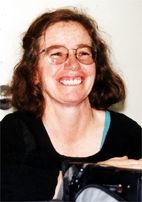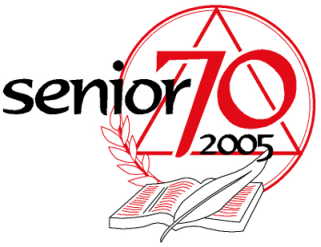In 1986, she and her family moved to her husband's home in Montevideo, Uruguay, where she studied education and developed programs by which children from poor families were engaged in education through group learning activities, known as the ludic method. In 1994, she returned to Bolivia and founded the Cultural Creative Center to promote her new model of education in the citizen sector and apply it in new ways within the formal education sector
Maria Carmen Schulze Q.E.P.D. (23-Feb-2008)
.jpg) Yo,
Maria Carmen Schulze
Yo,
Maria Carmen SchulzeSoy soñadora, idealista y emprendedora con grandes utopías, creo que es posible construir un mundo nuevo donde todos tengamos cabida, donde no hayan excluidos y prime la solidaridad y la alegría de estar vivo. Crecí en un hermoso entorno familiar y natural en La Paz y mucho en la calle entre amigos, juegos y travesuras. Una pregunta que me hacia siempre y me motivó a incursionar sobre nuevas formas de encarar los procesos educativos fue: Sí, todos nacemos con gran potencial creativo ¿Por qué no damos respuestas innovadoras ante los problemas sociales y económicos que nos agobian cada vez más? ¿Qué rol juega el sistema educativo en esta falta de respuestas? Y así surgió la idea de implementar una metodología innovadora que posibilite formar educadores que realmente sean creativos y que a su vez puedan formar educandos creativos. Comenzamos a investigar, incursionar y experimentar en una propuesta con una visión educativa basada en el juego y la creatividad, la percepción y la acción. Que posibilite la expresión libre, y que permita vencer todos los temores y culpas impuestas por la sociedad y sobre todo por el sistema educativo tradicional. De esta forma nos abrimos y abrimos puertas para el conocimiento, la experimentación y la investigación y me avoque de pleno a desarrollar el programa “Creatividad Educativa”.
Extracto de Volens America

